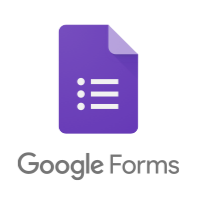Google’s Code Assist: A New Era for AI-Powered Coding
December 18, 2024, 3:59 pm

Location: United States, California, San Francisco
Employees: 51-200
Founded date: 2011
Total raised: $215M
In the fast-paced world of software development, time is money. Developers are constantly seeking tools that enhance productivity without disrupting their workflow. Enter Google’s Code Assist, now supercharged with Gemini 2.0. This upgrade is not just a tweak; it’s a leap into a new realm of coding efficiency.
Code Assist, formerly known as Duet AI, has undergone a significant transformation. With the integration of Gemini 2.0, Google’s latest large language model, the tool now boasts a longer context window. This means it can grasp larger code bases, making it a formidable ally for developers tackling complex projects. The ability to understand vast amounts of code is akin to having a seasoned navigator on a treacherous sea. It helps steer developers clear of potential pitfalls.
But that’s not all. Google has expanded Code Assist’s capabilities by connecting it to a plethora of third-party data sources. Imagine having a Swiss Army knife at your disposal—this tool can now pull information from GitHub, GitLab, Google Docs, Atlassian, Sentry.io, and Snyk, all while you code. This integration allows developers to access real-time data without the hassle of switching between multiple applications. It’s like having a personal assistant who anticipates your needs before you even ask.
The updates come at a time when the demand for AI-powered coding tools is skyrocketing. Competitors like GitHub Copilot have already captured a significant market share, boasting over 1.8 million paying customers. Google’s response is clear: it aims to reclaim its position in the AI coding landscape by offering enterprise-grade security and legal indemnification. This is crucial for organizations that prioritize data protection and compliance.
Ryan Salva, Google’s senior director for product management, emphasizes the importance of context in coding. Developers often juggle various tools throughout their day. By integrating Code Assist with the platforms they already use, Google is effectively reducing the friction of context switching. This means developers can stay in their flow state, focusing on writing code rather than managing multiple windows. It’s a game-changer.
The private preview of the new Gemini Code Assist tools is currently available to select Google Cloud partners. This exclusivity allows Google to refine the tool based on real-world feedback before a broader rollout. Early responses indicate that users appreciate the latency improvements of Gemini 2.0. In coding, every millisecond counts. Delays can disrupt concentration and lead to frustration. Quick responses from Code Assist can keep developers in the zone, enhancing overall productivity.
However, the rise of AI in coding is not without its challenges. A recent report highlighted that 39% of developers expressed distrust in AI-generated code. Concerns about security, copyright, and reliability loom large. As the industry evolves, the conversation is shifting. Developers are beginning to question not just the speed of AI tools, but their quality and stability. Salva notes that the focus will likely move towards using AI to enhance quality across various dimensions, rather than merely boosting productivity.
The landscape of coding assistants is rapidly changing. With tools like OpenAI’s ChatGPT and Anthropic’s Claude offering direct coding interfaces, the competition is fierce. Google’s Code Assist must not only keep pace but also innovate. The integration of autonomous agents, like Jules, into the coding process is a glimpse into the future. While Jules remains separate for now, its capabilities may eventually enhance Code Assist, further blurring the lines between human and machine collaboration.
As developers embrace AI tools, the industry must address the growing concerns surrounding them. The balance between efficiency and quality is delicate. Developers need tools that not only speed up the coding process but also ensure the integrity of the code produced. Google’s commitment to improving Code Assist’s capabilities is a step in the right direction, but it must continue to listen to user feedback and adapt accordingly.
In conclusion, Google’s Code Assist, powered by Gemini 2.0, represents a significant advancement in AI-assisted coding. By integrating with third-party data sources and enhancing its understanding of complex code bases, it aims to streamline the development process. However, as the industry grapples with trust issues and quality concerns, the future of AI in coding will depend on its ability to deliver not just speed, but also reliability. The journey has just begun, and the coding landscape is poised for transformation.
Code Assist, formerly known as Duet AI, has undergone a significant transformation. With the integration of Gemini 2.0, Google’s latest large language model, the tool now boasts a longer context window. This means it can grasp larger code bases, making it a formidable ally for developers tackling complex projects. The ability to understand vast amounts of code is akin to having a seasoned navigator on a treacherous sea. It helps steer developers clear of potential pitfalls.
But that’s not all. Google has expanded Code Assist’s capabilities by connecting it to a plethora of third-party data sources. Imagine having a Swiss Army knife at your disposal—this tool can now pull information from GitHub, GitLab, Google Docs, Atlassian, Sentry.io, and Snyk, all while you code. This integration allows developers to access real-time data without the hassle of switching between multiple applications. It’s like having a personal assistant who anticipates your needs before you even ask.
The updates come at a time when the demand for AI-powered coding tools is skyrocketing. Competitors like GitHub Copilot have already captured a significant market share, boasting over 1.8 million paying customers. Google’s response is clear: it aims to reclaim its position in the AI coding landscape by offering enterprise-grade security and legal indemnification. This is crucial for organizations that prioritize data protection and compliance.
Ryan Salva, Google’s senior director for product management, emphasizes the importance of context in coding. Developers often juggle various tools throughout their day. By integrating Code Assist with the platforms they already use, Google is effectively reducing the friction of context switching. This means developers can stay in their flow state, focusing on writing code rather than managing multiple windows. It’s a game-changer.
The private preview of the new Gemini Code Assist tools is currently available to select Google Cloud partners. This exclusivity allows Google to refine the tool based on real-world feedback before a broader rollout. Early responses indicate that users appreciate the latency improvements of Gemini 2.0. In coding, every millisecond counts. Delays can disrupt concentration and lead to frustration. Quick responses from Code Assist can keep developers in the zone, enhancing overall productivity.
However, the rise of AI in coding is not without its challenges. A recent report highlighted that 39% of developers expressed distrust in AI-generated code. Concerns about security, copyright, and reliability loom large. As the industry evolves, the conversation is shifting. Developers are beginning to question not just the speed of AI tools, but their quality and stability. Salva notes that the focus will likely move towards using AI to enhance quality across various dimensions, rather than merely boosting productivity.
The landscape of coding assistants is rapidly changing. With tools like OpenAI’s ChatGPT and Anthropic’s Claude offering direct coding interfaces, the competition is fierce. Google’s Code Assist must not only keep pace but also innovate. The integration of autonomous agents, like Jules, into the coding process is a glimpse into the future. While Jules remains separate for now, its capabilities may eventually enhance Code Assist, further blurring the lines between human and machine collaboration.
As developers embrace AI tools, the industry must address the growing concerns surrounding them. The balance between efficiency and quality is delicate. Developers need tools that not only speed up the coding process but also ensure the integrity of the code produced. Google’s commitment to improving Code Assist’s capabilities is a step in the right direction, but it must continue to listen to user feedback and adapt accordingly.
In conclusion, Google’s Code Assist, powered by Gemini 2.0, represents a significant advancement in AI-assisted coding. By integrating with third-party data sources and enhancing its understanding of complex code bases, it aims to streamline the development process. However, as the industry grapples with trust issues and quality concerns, the future of AI in coding will depend on its ability to deliver not just speed, but also reliability. The journey has just begun, and the coding landscape is poised for transformation.


